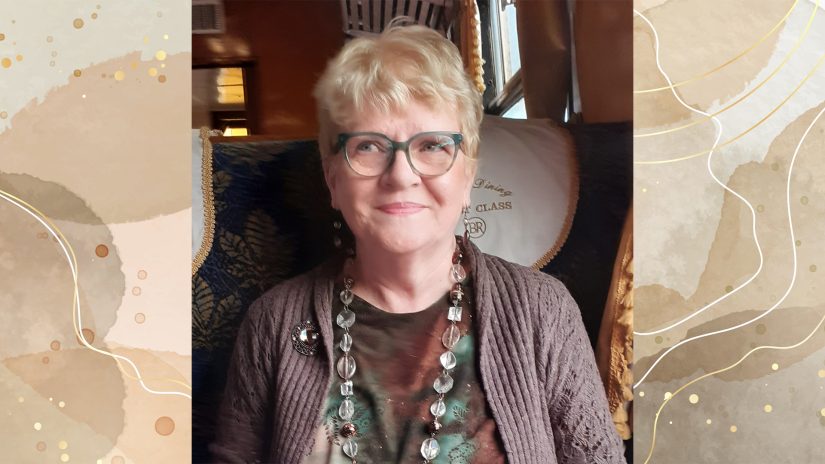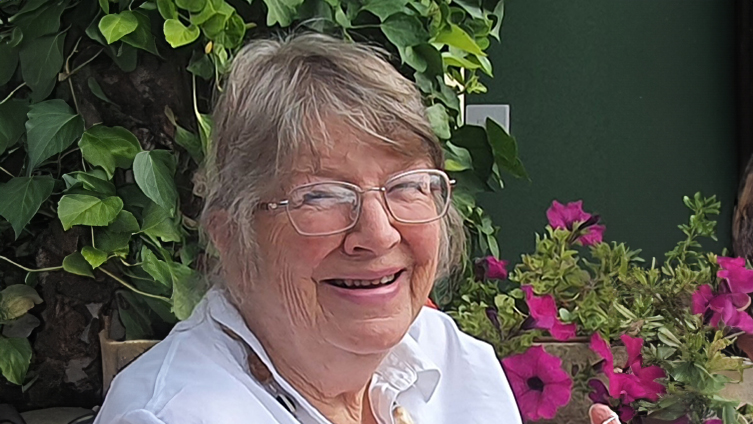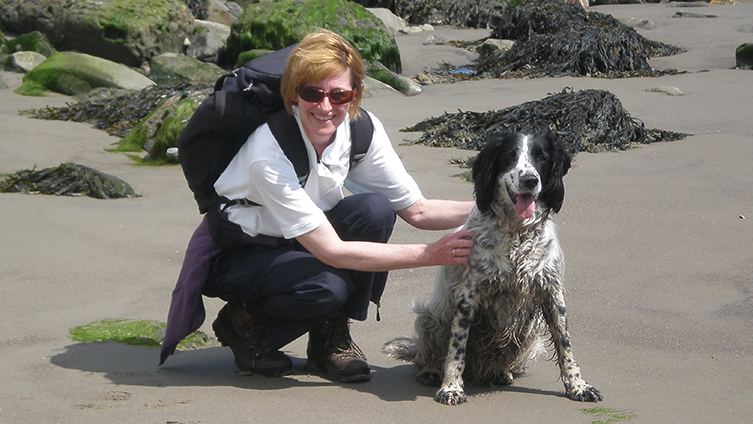
This week’s guest is Kate Blackadder, whose story Goodbye Sukey in our February 24 issue tackles quite a sensitive subject.
Goodbye Sukey starts out like your average frivolous women-friends kind of story until we learn more about Sukey’s dad having dementia at barely 50 and how it’s changed her life. It’s a sensitive subject to write into a story – what moved you to it?
I didn’t know at the beginning that that subject would come into the story. It started with a prompt in a creative writing class. We were given a long list of pop band names and had to choose one at random as a starting point. Mine was ‘Band of Susans’. When I read over later what I’d written I thought I would stick with it – that is, have each of the characters called a variation of Susan (against received wisdom, that the names in a short story should be quite different to avoid confusion!).
I knew that there must be a reason why the narrator was treated with kid gloves by the others and so it evolved … I read somewhere about young people (some much younger than Sukey) being carers so I thought I’d explore that.
What were the challenges of writing on the subject?
I didn’t feel I needed to go into too much detail, just what Sukey chose to share with Susan – I thought readers would read between the lines as, sadly, it’s a much-discussed topic these days.
You write serials for us, too – which discipline do you prefer? You’ve also written a novel (Stella’s Christmas Wish, published as an e-book by Black & White) – do you plan more?
I like writing both serials and short stories. They each have word limits and I enjoy that challenge.
With a story, I write it and send it off to you! But a serial requires a proposal first, and thereafter feedback on each instalment on what’s working/not working. I like that collaboration. And it is extra thrilling to see a serial in print!
I do have another novel (or two) in embryo but I get sidetracked by short story ideas.
Aspiring writers probably imagine that once you’ve been published once, it gets easier. Would you agree?
Alas, no! A short story has to speak for itself no matter how many you’ve had published. With novels, there are so many variables and a lot of it has to do with luck.
Notebook and pencil or laptop? Kitchen table or study? Blank wall or inspiring view?
Laptop. But pencil and paper if stuck – it frees you up (as long as you can read your writing back). I have a study, with a window onto the street and across the road to a large green space. I try not to get distracted by people/squirrels.
PS: You co-present the People’s Friend writing workshops, too, of course, so what’s your one top tip for aspiring writers?
My main tip for aspiring writers is to read your work aloud to yourself. You pick up repetitions/clunky dialogue etc that you don’t see onscreen.
Kate has a terrific blog of her own here.




